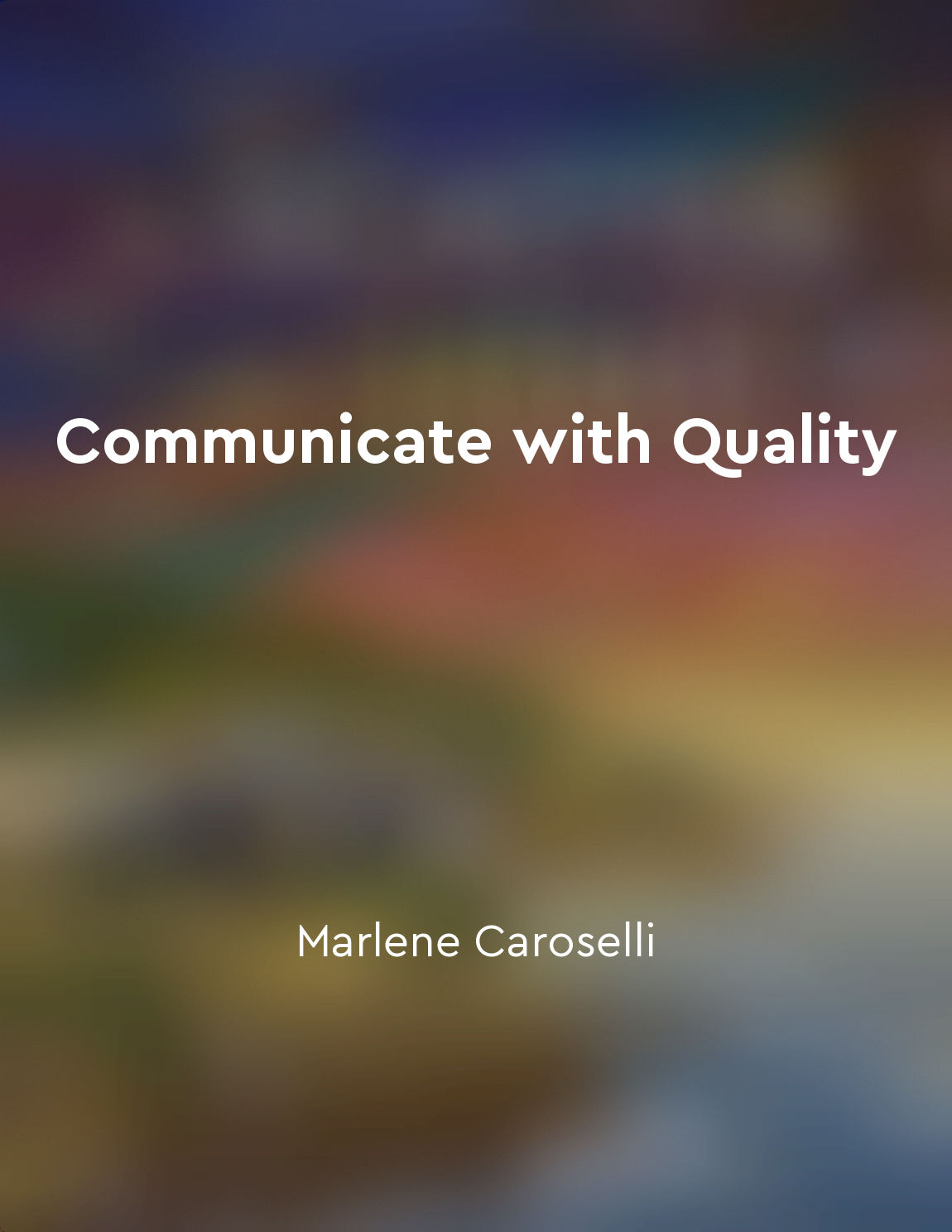Audio available in app
Use nonverbal cues to express agreement or disagreement from "summary" of Habilidades de Conversação: Como Falar com Qualquer Um & Formar Rapport Rápido em 30 Passos by The Blokehead
Nonverbal cues play a crucial role in expressing agreement or disagreement during conversations. These cues can include facial expressions, body language, gestures, and eye contact. When we agree with someone, we might nod our heads, smile, or maintain eye contact to show our approval. On the other hand, when we disagree, we might furrow our brows, shake our heads, or cross our arms to convey our disapproval. Using nonverbal cues to express agreement or disagreement can help create a deeper level of understanding between individuals. It allows us to communicate our thoughts and feelings without having to rely solely on words. This can be especially useful in situations where language barriers exist, as nonverbal cues are often universal and easily understood across different cultures. In addition to enhancing communication, nonverbal cues can also help to establish rapport with others. By mirroring the nonverbal cues of the person we are speaking with, we can build a sense of connection and trust. This can create a more positive and harmonious interaction, leading to smoother and more effective conversations. It is important to be aware of our own nonverbal cues as well as those of the person we are conversing with. By paying attention to these cues, we can better gauge the other person's reactions and adjust our own responses accordingly. This level of attentiveness can lead to improved communication and a stronger rapport with others.- Using nonverbal cues to express agreement or disagreement is a powerful tool in effective communication. By being mindful of our body language, gestures, and expressions, we can convey our thoughts and feelings more clearly and build stronger connections with the people around us.
Similar Posts

Practice active listening to show genuine interest in others
Active listening is a skill that goes beyond merely hearing words. It involves fully engaging in a conversation, showing genuin...
Listening is a skill that can be honed
The ability to listen effectively is not necessarily an innate talent; rather, it is a skill that can be developed and refined ...
Reflecting on past experiences can enhance communication skills
In their book 'Why Men Don't Have a Clue and Women Always Need More Shoes', Barbara and Allan Pease discuss the importance of r...
Interruptions can disrupt conversational flow
When one person interrupts another, it can disrupt the conversational flow. This is because interruptions can cause confusion a...

Cultivate a culture of trust and psychological safety
Creating a culture of trust and psychological safety is essential for fostering open and transparent communication within organ...
Understanding logical fallacies is crucial
Understanding logical fallacies is crucial because they can undermine the credibility and effectiveness of an argument. When so...
Break down communication barriers
Communication barriers can arise in various forms and can hinder effective communication between individuals. These barriers ca...
Confidence is key in delivering impactful speeches
Confidence plays a crucial role in the delivery of impactful speeches. When a speaker exudes confidence, it not only captivates...

Clothing choices can offer insights
The way people choose to dress themselves can reveal a lot about their personality, preferences, and even their state of mind. ...
Practice empathy to understand others' perspectives
To truly connect with someone, you must put yourself in their shoes. This means stepping out of your own perspective and into t...

